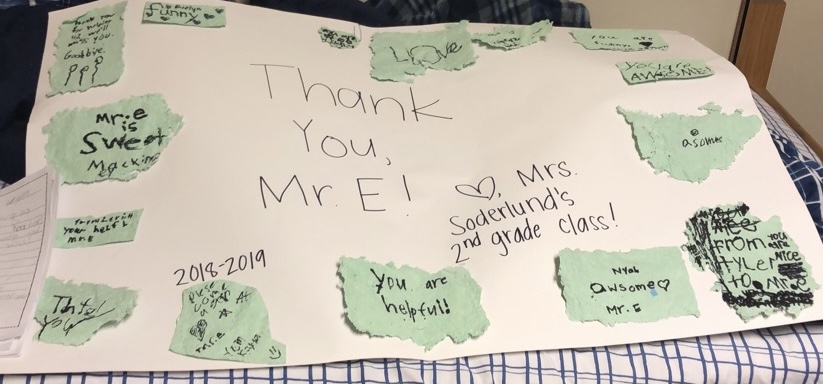Making is not a rebel movement, scrappy individuals going up against the system. While the shift might be from the corporate to the individual (supported, mind, by a different set of companies selling a different set of things), it mostly re-inscribes familiar values, in slightly different form: that artifacts are important, and people are not.
From Debbie Chachra’s “Why I Am Not a Maker” https://www.theatlantic.com/technology/archive/2015/01/why-i-am-not-a-maker/384767/
My first work-study job at Carleton had me working at the local elementary school in Northfield. I’d spend my weekday mornings teaching second graders how to count on their fingers, or exaggerating pauses in my reading to remind students of the function of the comma. I loved every minute of it, and left the job knowing that, no matter what I decided to do going forward, I wanted education to be a part of it.

Debbie Chachra’s “Why I Am Not a Maker” explores the notion of “making” being considered—and ultimately valued as—the only source of productivity in our society. She emphasizes in the quote above that our society at present rejects work such as teaching, medicine, and other such services as immaterial due to its lack of tangible outputs, thereby creating a binary in which every individual who chooses to pursue work that doesn’t “make” is viewed as inherently less than.
As someone with a love for education, Chachra’s points regarding the work of teachers being dismissed resonated deeply with me, and I think it’s extremely critical to emphasize the importance of teachers, not because the work can in some roundabout way be linked to the creation of more capital down the line, but because education, especially the education of children, is a valuable, meritable task in its own right. It’s often said that “those who can’t, teach.” The existence of such jokes and jabs further point to the prevalence of the “maker mindset” that the article highlights. Chachra has inspired me to continue pursuing the field of education in some way, shape, or form, while also advocating for its importance.
To this end, I am most interested in exploring the pedagogical applications of the softwares that we are introduced to in class, and hope to take out of this class new tools or knowledge with which I can combine my love of education with technology. Hopefully helping to further break down the current “maker-notmaker”, “useful-notuseful” binary that is imposed upon us.
I agree with a lot of your ideas and the poster is adorable!
Dominic, I really enjoyed reading this post. I hadn’t really thought much about the pedagogical implications of DH (especially for elementary schoolers), but I’m sure that there are so many!
It strikes me that the bias against teaching (the lack of tangible outputs, as you put it) is similar to the bias against the humanities at many schools today — the humanities supposedly do not prepare people for jobs. Maybe a new emphasis on the digital could help change both of those biases?